
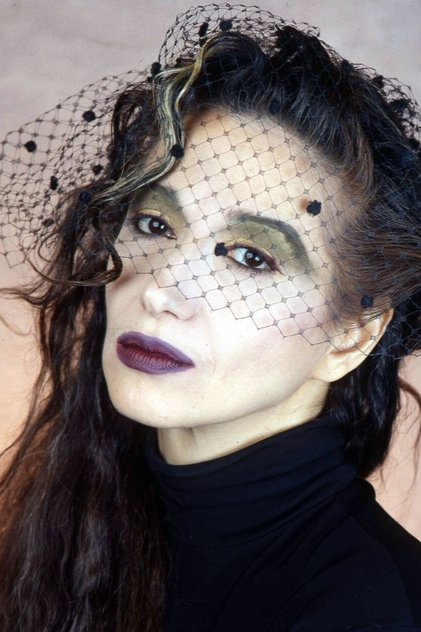
Sapho
Born: January 10, 1950
in Marrakech, Morocco
in Marrakech, Morocco
Sapho (1950) is a French-Moroccan singer. Her real name is Danielle Ebguy.
Born in Marrakech, Morocco, Sapho emigrated to France when she was 16. By age 18, she was living on her own in Paris, taking acting lessons, playing guitar and singing on the streets. A short time later, a musician friend convinced her to audition for famed music school, Le Petit Conservatoire de Mireille. Sapho soon abandoned her acting studies in favor of music. Her first LP, Le Balayeur du Rex, was released in 1977 by RCA.
After spending a year in New York, where she worked as a French reporter and played in different clubs, she went to London to record her second LP, Janis (1980). Sapho released three albums over the next three years, before taking a brief break to concentrate on a book featuring cartoons from the Brasserie La Coupole in Paris.
Sapho returned to music in 1985 with Passions, passons, which saw her leaving the rock sound of her previous albums to embrace the Middle Eastern sounds she had grown up with, leading to a series of concerts at Le Bataclan (Paris). There she began performing her arrangements of songs made popular by the great Egyptian singer Umm Kulthum. The next few years saw Sapho branching out further. Living for a while in Mexico, she released El Sol y la luna, which features a duet with the Argentinian singer, Jairo.
She published two novels, was involved in making a film about the children of the Intifada, and performed in a Threepenny Opera, all the while still performing and recording her own music. Starting in 1992, she focused on the music of Umm Kulthum, releasing a full album of that material and touring the world, even performing in Jerusalem in 1994.
Her next album, Jardin Andalou (1996), blended rock with Arabic and Andalusian elements. This was followed by Digital Sheikha, a more electronic-based album with Pat Jabbar and the contribution of Bill Laswell, for the Swiss label Barraka el Farnatshi. In 1999, La Route nue des hirondelles was released along with her third novel. She transformed La Route nue des hirondelles into a stage show, which she toured for the next couple of years, while also continuing with the Umm Kulthum material.
Returning to composition, Sapho worked and performed in Bagdad, Jerusalem, Nazareth and Gaza before recording Orients (2003) with a classical orchestra made of Jewish, Muslim and Christian musicians. In 2005, accompanied on stage by a flamenco guitarist, she focused on material by famous French songwriter and composer Léo Ferré. In 2006, the album Sapho chante Léo Ferré – Ferré Flamenco followed, featuring a song translated in Darija (Moroccan Arabic dialect). Her latest album, Universelle, in French, English and Darija is a kind of travel through all of her influences, from blues to traditional sounds.
Source: Article "Sapho (singer)" from Wikipedia in English, licensed under CC-BY-SA 3.0.
Born in Marrakech, Morocco, Sapho emigrated to France when she was 16. By age 18, she was living on her own in Paris, taking acting lessons, playing guitar and singing on the streets. A short time later, a musician friend convinced her to audition for famed music school, Le Petit Conservatoire de Mireille. Sapho soon abandoned her acting studies in favor of music. Her first LP, Le Balayeur du Rex, was released in 1977 by RCA.
After spending a year in New York, where she worked as a French reporter and played in different clubs, she went to London to record her second LP, Janis (1980). Sapho released three albums over the next three years, before taking a brief break to concentrate on a book featuring cartoons from the Brasserie La Coupole in Paris.
Sapho returned to music in 1985 with Passions, passons, which saw her leaving the rock sound of her previous albums to embrace the Middle Eastern sounds she had grown up with, leading to a series of concerts at Le Bataclan (Paris). There she began performing her arrangements of songs made popular by the great Egyptian singer Umm Kulthum. The next few years saw Sapho branching out further. Living for a while in Mexico, she released El Sol y la luna, which features a duet with the Argentinian singer, Jairo.
She published two novels, was involved in making a film about the children of the Intifada, and performed in a Threepenny Opera, all the while still performing and recording her own music. Starting in 1992, she focused on the music of Umm Kulthum, releasing a full album of that material and touring the world, even performing in Jerusalem in 1994.
Her next album, Jardin Andalou (1996), blended rock with Arabic and Andalusian elements. This was followed by Digital Sheikha, a more electronic-based album with Pat Jabbar and the contribution of Bill Laswell, for the Swiss label Barraka el Farnatshi. In 1999, La Route nue des hirondelles was released along with her third novel. She transformed La Route nue des hirondelles into a stage show, which she toured for the next couple of years, while also continuing with the Umm Kulthum material.
Returning to composition, Sapho worked and performed in Bagdad, Jerusalem, Nazareth and Gaza before recording Orients (2003) with a classical orchestra made of Jewish, Muslim and Christian musicians. In 2005, accompanied on stage by a flamenco guitarist, she focused on material by famous French songwriter and composer Léo Ferré. In 2006, the album Sapho chante Léo Ferré – Ferré Flamenco followed, featuring a song translated in Darija (Moroccan Arabic dialect). Her latest album, Universelle, in French, English and Darija is a kind of travel through all of her influences, from blues to traditional sounds.
Source: Article "Sapho (singer)" from Wikipedia in English, licensed under CC-BY-SA 3.0.
Movies for Sapho...
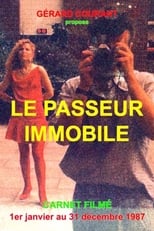
Title: Le Passeur immobile
Character: Self
Released: December 14, 2021
Type: Movie
Le Passeur immobile, which covers the year 1987, is a Booklet filmed stuck between The Days and the Nights (1986) and The Artifice and the Fake (1988). These Notebooks have been punctuating my activity as a filmmaker for about fifteen years. They are like a life parallel to my other films and film series (Cinema, Group Portrait, Read, etc.). They are also like a letter to the spectators.

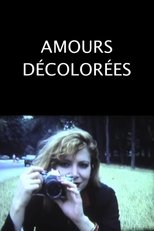
Title: Amours décolorées
Released: February 2, 1998
Type: Movie
Amours décolorées is a cinematographic poem to the glory of Mariola San Martin, model, stylist, dancer and Spanish photographer.

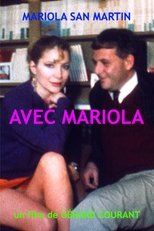



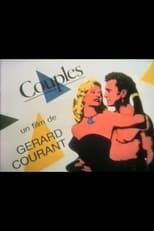
Title: Couple
Character: Self
Released: January 18, 1986
Type: Movie
Couple is a cinematic series of portrait films, which show two persons, who free to do what they wish, in a fixed camera shot of 3:20 minutes.

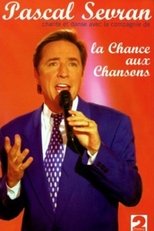

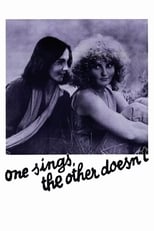
Title: One Sings, the Other Doesn't
Released: March 9, 1977
Type: Movie
In this story of friendship and reproductive rights, 14 years in the relationship between two very dissimilar women are chronicled. Pauline is a middle-class city girl, at odds with her very conventional family. Suzanne is several years older, a country girl with two illegitimate children and another (whom she cannot support) on the way. Pauline loans Suzanne money for an abortion. At this point, the two separate and communicate mainly through postcards. Some years later, they meet at an abortion rally, and they have many adventures and stories to share with one another.


Title: Numéro un
Character: Self
Released: April 5, 1975
Type: TV
A French variety show.

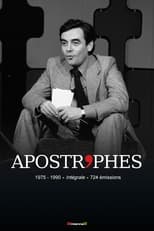
Title: Apostrophes
Character: Self
Released: January 10, 1975
Type: TV
Apostrophes was a live, weekly, literary, prime-time, talk show on French television created and hosted by Bernard Pivot. It ran for fifteen years (724 episodes) from January 10, 1975, to June 22, 1990, and was one of the most watched shows on French television (around 6 million regular viewers). It was broadcast on Friday nights on the channel France 2 (which was called "Antenne 2" from 1975 to 1992). The hourlong show was devoted to books, authors and literature. The format varied between one-on-one interviews with a single author and open discussions between four or five authors.
